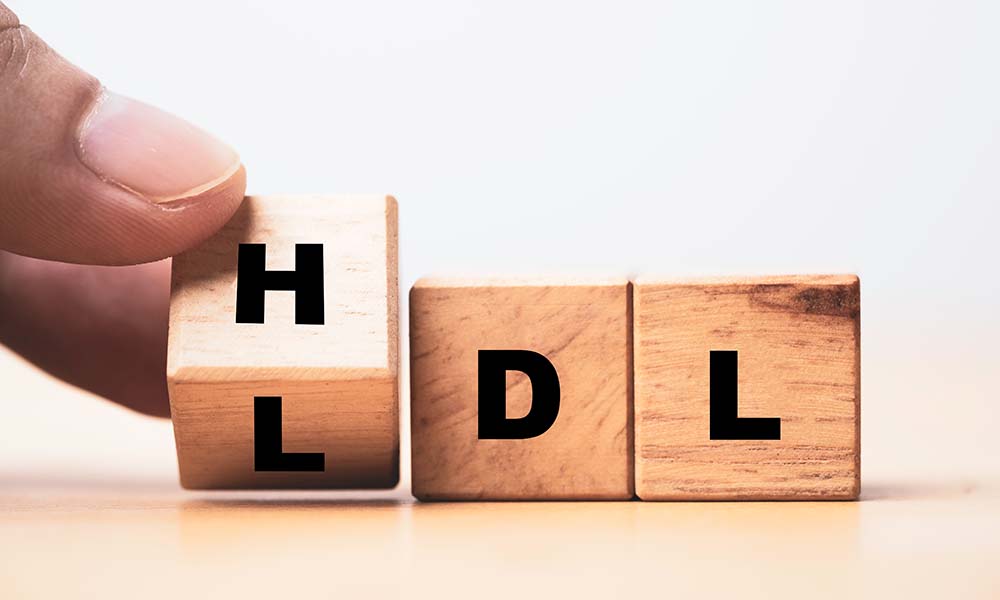High Cholesterol: Symptoms, Causes, Diagnosis, & Prevention

TABLE OF CONTENTS
High cholesterol levels can have serious consequences on your health, including damaging your nervous system. Medanta, a leading healthcare provider in India, is here to explain the risks of high cholesterol levels and provide insight into how you can keep your cholesterol under control.
From what causes high cholesterol to the physical symptoms of having high cholesterol, this blog post will guide you through understanding the effects of high cholesterol on your body and how to maintain healthy levels.
What is Cholesterol?
To begin, it’s important to understand what cholesterol is and how it works in the body. Cholesterol is a type of fat found in all cells of the body, and its primary function is to help produce cell membranes, certain hormones, and vitamin D.
The two main types of cholesterol are low-density lipoprotein (LDL) and high-density lipoprotein (HDL). LDL cholesterol is generally seen as “bad” because it can contribute to blockages in our arteries while HDL cholesterol is considered “good” because it helps remove LDL cholesterol from the bloodstream.
How Does High Cholesterol Affect Our Nervous System?
When too much LDL cholesterol accumulates in our bloodstream, it can lead to a range of health issues including damaging our nervous system. High levels of cholesterol can cause nerve damage by narrowing or blocking off blood vessels that supply oxygen and nutrients to the nervous system.
This can affect the ability for signals to travel between the brain and other parts of the body which might lead to physical symptoms such as numbness or tingling in your feet, legs, or hands.
What Are the Symptoms of High Cholesterol?
When it comes to symptoms of high cholesterol, they can vary from person to person. In general, there may not be any noticeable physical symptoms associated with high cholesterol. That's why it's important to have regular blood tests done to monitor your numbers over time. However, some people may experience chest pain or discomfort due to blocked arteries caused by plaque build-up. You may also experience fatigue or shortness of breath as a result of poor circulation.
What Causes High Cholesterol?
Having high levels of LDL cholesterol is one of the biggest risk factors for heart disease. So, what causes high cholesterol? Diet and exercise are two major lifestyle factors that have a big impact on your cholesterol level. Eating a healthy diet rich in fruits, vegetables, whole grains, lean proteins, and healthy fats like olive oil can help lower your LDL levels and raise your HDL levels. Regular physical activity can also help reduce bad cholesterol while boosting good cholesterol.
Genetics may also play a role in determining your individual risk for high cholesterol. If you have one or more family members who have been diagnosed with high cholesterol, there's a higher chance that you may also be at risk for developing the condition.

Certain medications can also contribute to high LDL levels including some birth control pills, antipsychotics, corticosteroids, and some immunosuppressant drugs. Additionally, certain diseases such as diabetes, thyroid disorder, or kidney disease may also increase your risk of developing high cholesterol levels.
Other factors such as age, sex, and family history of heart disease or stroke can also contribute to an elevated risk for the condition.
Diagnosis & Treatment:
If you suspect that you may have high levels of cholesterol, your healthcare provider will be able to provide an accurate diagnosis with a simple blood test.
Depending on your results, they may suggest lifestyle modifications such as increasing physical activity, reducing stress levels, quitting smoking, and eating a healthy diet consisting of whole grains, fruits, and vegetables for managing high cholesterol levels.
Your healthcare provider may also recommend medication if needed such as statins which reduce the production of LDL cholesterol or bile acid sequestrants which bind these fats and prevent them from being absorbed in your intestines.
Prevention & Lifestyle Changes:
At Medanta, we recognize that prevention is always better than cure when it comes to our health. With this in mind, there are steps you can take daily to ensure that your risk of developing high cholesterol levels remains low.
Eating a balanced diet with plenty of fiber-rich foods like oats and whole grain bread as well as avoiding sugary snacks or fried foods can help keep your LDL levels under control.
Regular exercise such as walking for 30 minutes every day also does wonders for lowering those bad cholesterol numbers whilst stress reduction activities like yoga or meditation further contribute towards maintaining good overall health.
Conclusion:
In conclusion, high levels of LDL cholesterol can have serious consequences on our nervous systems by potentially blocking nutrient flow to these delicate organs. To help reduce this risk Medanta recommends lifestyle changes such as increasing physical activity, making dietary adjustments, and reducing stress levels along with consulting with us for medical solutions if required allowing you to maintain healthy levels at all times!


